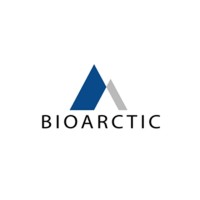Lecanemab's EU Setback: A Race Against Time for Alzheimer's Treatment
July 27, 2024, 10:55 am

Location: United States, Massachusetts, Cambridge
Employees: 5001-10000
Founded date: 1978

Location: United States, Massachusetts, Lincoln
Employees: 201-500
Founded date: 1812
In a world where time is a precious commodity, the recent decision by the Committee for Medicinal Products for Human Use (CHMP) of the European Medicines Agency (EMA) has sent ripples of disappointment through the Alzheimer’s community. On July 26, 2024, the CHMP issued a negative opinion regarding the Marketing Authorization Approval (MAA) for lecanemab, a drug developed by BioArctic AB and its partner Eisai. This decision has significant implications for patients, caregivers, and healthcare professionals across Europe.
Lecanemab, marketed as Leqembi®, is already making waves in the United States, Japan, China, South Korea, Hong Kong, and Israel. It has been hailed as a groundbreaking treatment for early Alzheimer’s disease, showing promise in slowing cognitive decline. However, the CHMP's rejection has thrown a wrench into the plans for its availability in the European Union, where approximately 6.9 million people currently live with Alzheimer’s disease. This number is projected to nearly double by 2050, underscoring the urgency for effective treatments.
The CHMP's decision is not the final word. Eisai has announced plans to seek a re-examination of the opinion. This formal request allows for a 60-day window to present arguments for reconsideration. The stakes are high. For many patients, lecanemab represents a beacon of hope, a chance to delay the progression of a devastating disease. The clock is ticking, and every moment counts.
Lecanemab is a humanized monoclonal antibody designed to target amyloid-beta, a protein that forms plaques in the brains of Alzheimer’s patients. The drug's efficacy was demonstrated in the Phase 3 Clarity AD study, which showed statistically significant results in slowing cognitive decline. The study's findings were celebrated in the medical community, yet the CHMP's recent decision casts a shadow over these achievements.
BioArctic and Eisai have been collaborating since 2005, with a focus on developing innovative treatments for neurodegenerative diseases. Their partnership has yielded promising results, but the road to regulatory approval is fraught with challenges. The negative opinion from the CHMP is a setback, but it is not insurmountable. The companies are determined to work closely with regulatory authorities to ensure that lecanemab reaches those who need it most.
The implications of this decision extend beyond the immediate disappointment. It raises questions about the regulatory landscape for Alzheimer’s treatments in Europe. As the population ages, the demand for effective therapies will only increase. The CHMP's decision may reflect a cautious approach to new treatments, but it also highlights the need for a more streamlined process for approving innovative therapies.
The emotional toll of Alzheimer’s disease is profound. Patients and their families face a relentless decline in cognitive function, often accompanied by a loss of independence and dignity. Caregivers bear the weight of this burden, navigating a complex healthcare system while trying to provide support and comfort. For them, the promise of a treatment like lecanemab is not just about numbers; it’s about lives changed and futures reclaimed.
Eisai's commitment to seeking re-examination of the CHMP's opinion is a testament to their dedication to patients. They understand that time is of the essence. The company has already submitted applications for lecanemab in 11 other countries and regions, reflecting a global strategy to bring this treatment to market. The urgency is palpable, as patients in Europe await a decision that could alter the course of their disease.
The collaboration between BioArctic and Eisai is a model of innovation in the biopharmaceutical industry. Their joint efforts have produced a drug that has the potential to change the landscape of Alzheimer’s treatment. However, the recent setback serves as a reminder that the path to approval is often riddled with obstacles. It underscores the importance of perseverance and collaboration in the face of adversity.
As the re-examination process unfolds, the Alzheimer’s community will be watching closely. The outcome could set a precedent for future treatments and shape the regulatory environment for years to come. The hope is that the CHMP will reconsider its stance and recognize the urgency of providing effective therapies for those living with Alzheimer’s disease.
In conclusion, the CHMP's negative opinion on lecanemab is a significant hurdle, but it is not the end of the road. The commitment of BioArctic and Eisai to seek re-examination reflects a deep understanding of the stakes involved. For patients and families affected by Alzheimer’s, every day counts. The race against time continues, and the hope for a brighter future remains alive. The fight for lecanemab is not just about a drug; it’s about dignity, hope, and the relentless pursuit of a cure.
Lecanemab, marketed as Leqembi®, is already making waves in the United States, Japan, China, South Korea, Hong Kong, and Israel. It has been hailed as a groundbreaking treatment for early Alzheimer’s disease, showing promise in slowing cognitive decline. However, the CHMP's rejection has thrown a wrench into the plans for its availability in the European Union, where approximately 6.9 million people currently live with Alzheimer’s disease. This number is projected to nearly double by 2050, underscoring the urgency for effective treatments.
The CHMP's decision is not the final word. Eisai has announced plans to seek a re-examination of the opinion. This formal request allows for a 60-day window to present arguments for reconsideration. The stakes are high. For many patients, lecanemab represents a beacon of hope, a chance to delay the progression of a devastating disease. The clock is ticking, and every moment counts.
Lecanemab is a humanized monoclonal antibody designed to target amyloid-beta, a protein that forms plaques in the brains of Alzheimer’s patients. The drug's efficacy was demonstrated in the Phase 3 Clarity AD study, which showed statistically significant results in slowing cognitive decline. The study's findings were celebrated in the medical community, yet the CHMP's recent decision casts a shadow over these achievements.
BioArctic and Eisai have been collaborating since 2005, with a focus on developing innovative treatments for neurodegenerative diseases. Their partnership has yielded promising results, but the road to regulatory approval is fraught with challenges. The negative opinion from the CHMP is a setback, but it is not insurmountable. The companies are determined to work closely with regulatory authorities to ensure that lecanemab reaches those who need it most.
The implications of this decision extend beyond the immediate disappointment. It raises questions about the regulatory landscape for Alzheimer’s treatments in Europe. As the population ages, the demand for effective therapies will only increase. The CHMP's decision may reflect a cautious approach to new treatments, but it also highlights the need for a more streamlined process for approving innovative therapies.
The emotional toll of Alzheimer’s disease is profound. Patients and their families face a relentless decline in cognitive function, often accompanied by a loss of independence and dignity. Caregivers bear the weight of this burden, navigating a complex healthcare system while trying to provide support and comfort. For them, the promise of a treatment like lecanemab is not just about numbers; it’s about lives changed and futures reclaimed.
Eisai's commitment to seeking re-examination of the CHMP's opinion is a testament to their dedication to patients. They understand that time is of the essence. The company has already submitted applications for lecanemab in 11 other countries and regions, reflecting a global strategy to bring this treatment to market. The urgency is palpable, as patients in Europe await a decision that could alter the course of their disease.
The collaboration between BioArctic and Eisai is a model of innovation in the biopharmaceutical industry. Their joint efforts have produced a drug that has the potential to change the landscape of Alzheimer’s treatment. However, the recent setback serves as a reminder that the path to approval is often riddled with obstacles. It underscores the importance of perseverance and collaboration in the face of adversity.
As the re-examination process unfolds, the Alzheimer’s community will be watching closely. The outcome could set a precedent for future treatments and shape the regulatory environment for years to come. The hope is that the CHMP will reconsider its stance and recognize the urgency of providing effective therapies for those living with Alzheimer’s disease.
In conclusion, the CHMP's negative opinion on lecanemab is a significant hurdle, but it is not the end of the road. The commitment of BioArctic and Eisai to seek re-examination reflects a deep understanding of the stakes involved. For patients and families affected by Alzheimer’s, every day counts. The race against time continues, and the hope for a brighter future remains alive. The fight for lecanemab is not just about a drug; it’s about dignity, hope, and the relentless pursuit of a cure.

